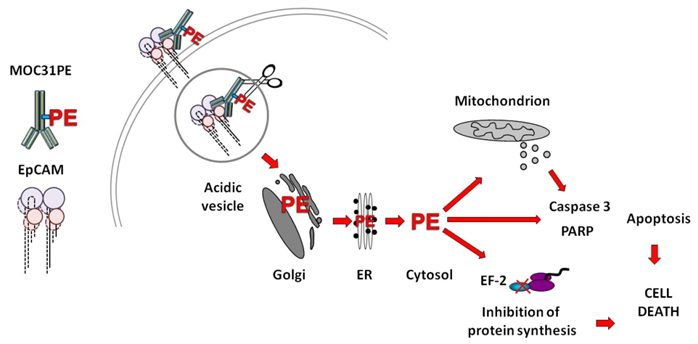Yvonne Andersson's project group: Targeted Cancer Therapy with Immunotoxin for Peritoneal Surface Malignancies

Our group has extensive experience in the immunotoxin field: production, characterization in vitro and in vivo and conducting clinical Phase I trials. Immunotoxins are targeted therapeutics consisting of an antibody domain for binding target cancer cells and a toxin domain that triggers cancer cell death (Figure 1). Immunotoxins exhibit rapid cytotoxicity, distinct mechanisms of action, ability to kill cancer cells resistant to chemotherapy, and exert tumor cell selectivity.
The last few years we have evaluated the use of an EpCAM-targeted immunotoxin MOC31PE for peritoneal surface malignancy as an attractive candidate for local therapy in the peritoneal cavity. We hope that the clinical use of immunotoxins will result in an efficacious and less toxic treatment for cancer patients for whom conventional treatment is no longer effective.
Ongoing projects:
- Perform a clinical Phase I/II trial with immunotoxin MOC31PE intraperitoneally administered in patients with peritoneal surface malignancy from colorectal cancer.
- Continue to examine suitable combination therapies with immunotoxin for the treatment of peritoneal surface malignancy from ovarian cancer.
- Establish an optimized production line for immunotoxin, with the goal of producing a new clinical batch for further clinical use.
Contact information

